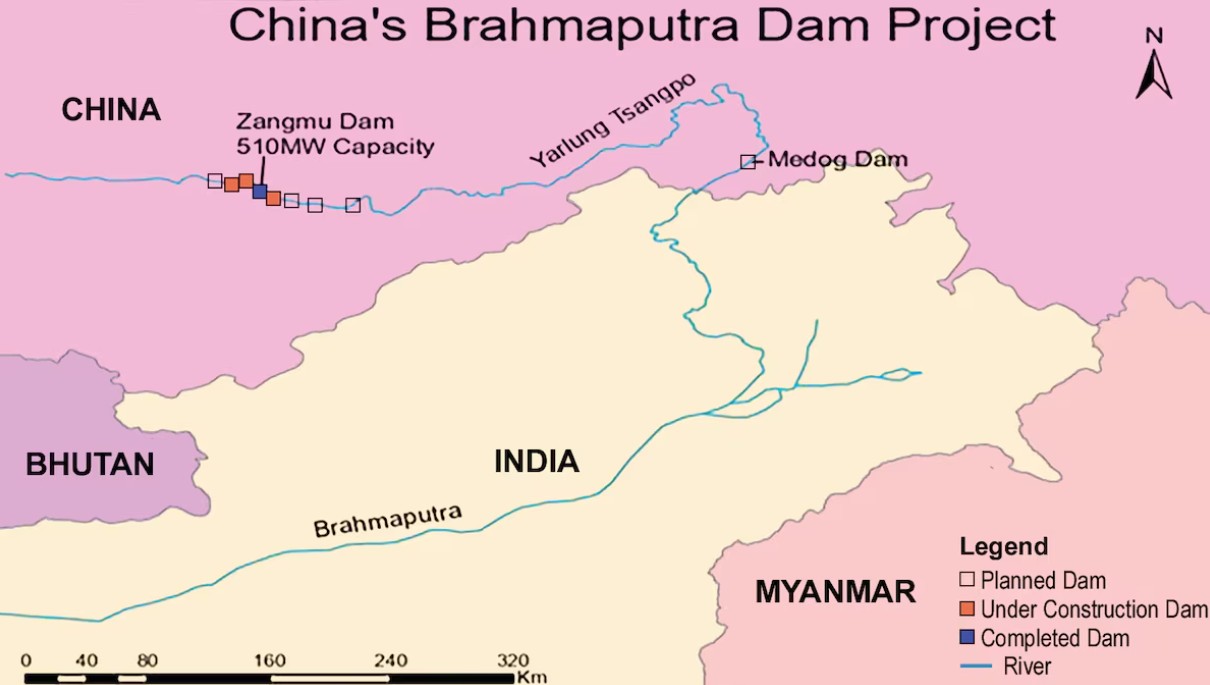Chinese Prime Minister Li Qiang has announced the formal commencement of construction on a massive hydropower project on the Brahmaputra River,
raising fresh concerns in neighbouring countries over its potential downstream impact.
Li, who is a member of the Standing Committee of the Political Bureau of the Communist Party of China (CPC) Central Committee, made the announcement on Saturday while attending the groundbreaking ceremony at Nyingchi city in the Tibet Autonomous Region, according to a report by China’s state-run Xinhua News Agency.
The ceremony was held at the site of the Mainling Hydropower Station’s dam in Nyingchi. Senior officials from the National Development and Reform Commission and the Power Construction Corporation of China spoke at the event. Representatives from the project’s expert advisory committee as well as local community leaders were also present.
The ambitious project includes the construction of five cascade hydropower stations along the Brahmaputra, known in China as the Yarlung Zangbo. The estimated investment is reported to be around 1.02 trillion yuan (approximately $16.78 billion).
The project is intended primarily to supply electricity to other Chinese provinces, while also serving the energy needs of Tibet itself. To facilitate construction and future operations, a new entity—China Yajiang Group Company Limited—has been established. Vice Premier Zhang Guoqing, also a member of the CPC Central Committee’s Political Bureau, attended its recent inauguration ceremony in Beijing.
Although officially designated as a hydropower project, it is widely viewed as the world’s largest dam under construction, a project with far-reaching implications for the flow of the Brahmaputra into downstream countries like India and Bangladesh.
Meanwhile, Indian officials have expressed serious concerns about the project’s potential impact on water security and livelihoods. Pema Khandu, Chief Minister of India’s Arunachal province, warned of the risks posed by the dam, reports South Asian news agencies.
“This dam could become more dangerous for India than a bomb,” Khandu said. “It is more than a military move against us. Once completed, this project will threaten the very existence of our livelihoods.”
Analysts note that the project reflects China’s broader strategy of leveraging water resources as part of its geopolitical posture in South Asia.


